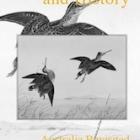Soeterboek, Chris. “ ‘Folk-Ecology’ in the Australian Alps: Forest Cattlemen and the Royal Commissions of 1939 and 1946.” Environment and History 14, no. 2, “Australia Revisited” special issue (May, 2008): 241–63. doi:10.3197/096734008X303755. Folk-ecology is a term more commonly used by anthropologists describing small-scale subsistence societies. Soeterboek uses the concept to explain the environmental understandings of the forest cattlemen or ‘bushmen’ of Victoria’s alpine forests, in particular their understanding of fire-ecology in alpine and mountain ash landscapes on which they based their use of fire. Confident in their local knowledge, mountain cattlemen challenged the dominant scientific understandings of the environment held to by foresters and ecologists of the time. The author argues in this paper that the basis of these cattlemen’s use of fire to manage the land was their understanding of the practices during the ‘pioneering’ period of European settlement and of Aboriginal people before that. This peculiar view of the ‘natural’ state of the environment made it difficult for many of them to see their own environmental impacts. Information from ecologists and foresters that often highlighted the existence of environmental problems was dismissed as merely the ‘theoretical’ understandings of those who had not experienced the landscape as intimately as the high-country bushmen. All rights reserved. © 2008 The White Horse Press
"'Folk-Ecology' in the Australian Alps: Forest Cattlemen and the Royal Commissions of 1939 and 1946"
Soeterboek, Chris | from Multimedia Library Collection:
Environment and History (journal)


